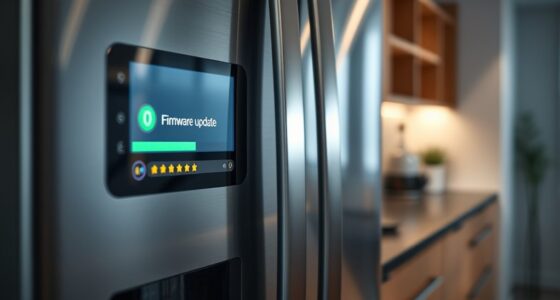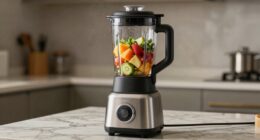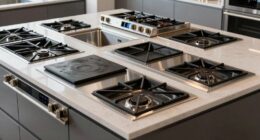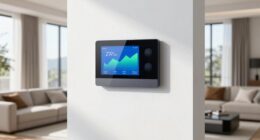When selecting energy-efficient home appliances, it’s important to remember that “knowledge is power.” That’s why we have compiled eight essential tips to assist you in making informed decisions for your home.
In this guide, we will explore the key features to look for in energy-saving appliances, such as understanding energy efficiency ratings and evaluating the appliance’s size and capacity.
We will also delve into the importance of considering the appliance’s energy source and opting for appliances with smart technology.
Additionally, we’ll discuss how to take advantage of rebates and incentives, research user reviews and ratings, and consider the compatibility of appliances with renewable energy sources.

Lastly, we will shed light on the environmental impact of the appliances you choose.
So, let’s empower ourselves with these eight tips and make our homes more energy-efficient!
Key Takeaways
- Prioritize appliances with built-in energy-saving features and programmable settings for customization of energy usage.
- Energy efficiency ratings help make informed decisions and save on energy bills, with higher ratings resulting in lower energy usage and cost savings.
- Smart connectivity enables remote monitoring and control of appliances, contributing to both cost savings and environmental impact.
- Consider the energy source of appliances, with gas appliances generally having lower operating costs and faster heating times, while electric appliances may offer energy-saving features and wider availability.
Energy-Saving Features to Look for
When selecting energy-efficient home appliances, we should prioritize those with built-in energy-saving features. These features are designed to maximize energy efficiency and minimize energy consumption. By incorporating energy-saving technology and energy-efficient design, these appliances offer significant benefits in terms of both cost savings and environmental impact.
One key feature to look for is programmable settings, which allow you to customize the appliance’s energy usage based on your needs. For example, a programmable thermostat can automatically adjust the temperature settings throughout the day, ensuring optimal comfort while minimizing energy waste.

Another important feature is smart connectivity, which allows appliances to communicate with each other and with your mobile device. This enables you to monitor and control energy usage remotely, ensuring that appliances are only operating when necessary.
Furthermore, appliances with advanced insulation and sealing mechanisms help to minimize energy loss. This is particularly important for refrigerators and freezers, as proper insulation ensures that cold air remains inside, reducing the workload on the cooling system.
In conclusion, when choosing energy-efficient home appliances, it’s crucial to prioritize those with built-in energy-saving features like programmable settings, smart connectivity, and advanced insulation. These features not only save energy but also contribute to a more sustainable and cost-effective household.
Now, let’s delve into the next section, which focuses on understanding energy efficiency ratings.
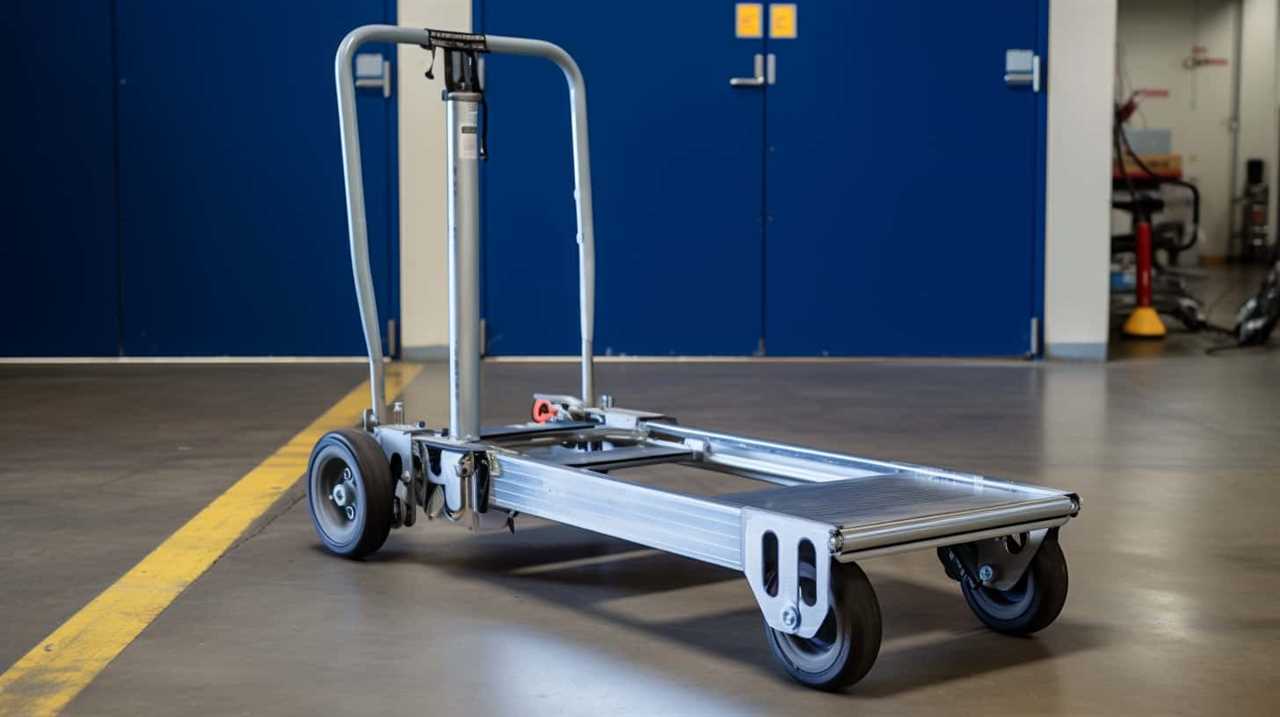
Understanding Energy Efficiency Ratings
Understanding energy efficiency ratings is crucial when choosing home appliances. These ratings indicate how much energy an appliance consumes and can help us make informed decisions to save on our energy bills.
Importance of Ratings
To fully grasp the importance of energy efficiency ratings, we need to familiarize ourselves with how they work and what they signify. Energy efficiency ratings provide valuable information about the energy-saving capabilities of home appliances. They serve as a guide for consumers to make informed decisions when purchasing appliances, helping them choose products that will save energy and reduce their utility bills.
Understanding energy efficiency ratings is crucial because it allows us to maximize the energy efficiency benefits of our appliances. By selecting appliances with higher ratings, we can significantly reduce our energy consumption and lower our carbon footprint. These ratings indicate the efficiency of appliances in converting energy into useful work, such as heating or cooling. The higher the rating, the more efficient the appliance is, resulting in lower energy usage and cost savings.
Saving on Energy Bills
Now let’s delve into how we can save on energy bills by fully comprehending energy efficiency ratings.

Understanding energy efficiency ratings is crucial for reducing our carbon footprint and maximizing savings. Energy efficient technology plays a vital role in conserving energy and minimizing waste.
By choosing appliances with high energy efficiency ratings, we can significantly reduce our energy consumption and subsequently lower our utility bills. Energy efficiency ratings, such as the Energy Star rating, provide valuable information about an appliance’s energy performance.
These ratings help us identify appliances that consume less energy while delivering the same level of functionality. By investing in energy efficient appliances, we not only save money but also contribute to a greener and more sustainable future.
Comparing Different Appliances
Let’s start by comparing different appliances and understanding energy efficiency ratings.

When evaluating performance and energy usage, it’s important to consider the energy efficiency ratings of different appliances. These ratings provide valuable information about how efficiently an appliance uses energy.
The most common rating system is the Energy Star rating, which is given to appliances that meet or exceed certain energy efficiency standards set by the Environmental Protection Agency (EPA). The Energy Star label can be found on a wide range of appliances, including refrigerators, washing machines, and dishwashers.
It’s important to note that higher energy efficiency ratings generally indicate lower energy usage, which can result in significant cost savings over time.
Evaluating the Appliance’s Size and Capacity
When considering energy-efficient home appliances, it’s important to evaluate the appliance’s size and capacity in order to maximize efficiency. Evaluating energy usage and maximizing energy efficiency go hand in hand when choosing the right size and capacity for your appliances.

Firstly, it’s crucial to understand that larger appliances tend to consume more energy. Therefore, opting for a smaller size can help reduce energy consumption. Consider your household’s needs and choose an appliance that’s appropriately sized to meet those needs without being excessive.
Additionally, the capacity of an appliance plays a significant role in its energy efficiency. It’s essential to select an appliance with a capacity that matches your requirements. For example, if you only need to wash a few dishes, a dishwasher with a smaller capacity will be more energy-efficient than one with a larger capacity.
Moreover, consider the space available in your home when evaluating the appliance’s size. Ensure that the appliance fits properly and doesn’t interfere with other appliances or obstruct walkways.
Consider the Appliance’s Energy Source
When choosing an energy-efficient home appliance, it’s crucial to consider the appliance’s energy source.
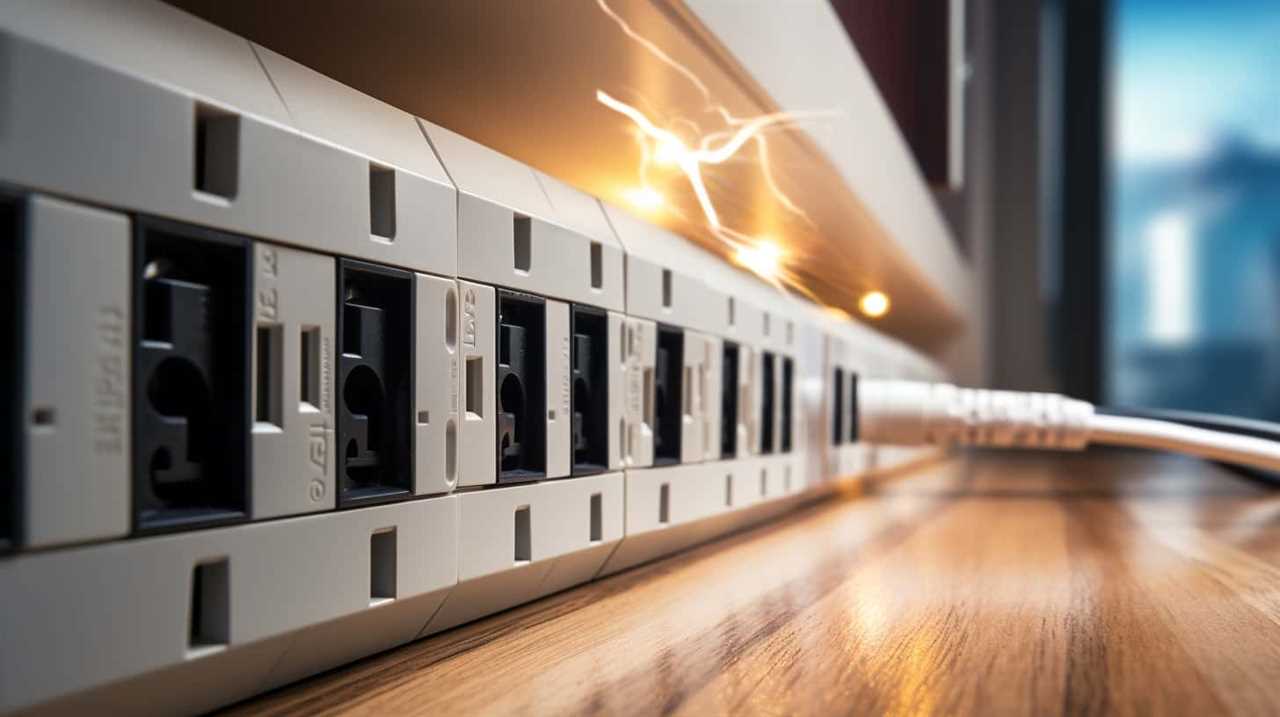
The two main options are gas and electric, each with its own advantages and disadvantages.
Gas appliances tend to have lower operating costs and faster heating times, but they require a gas connection.
Electric appliances are more widely available and often offer energy-saving features, but they can be more expensive to operate.
Additionally, it’s worth exploring renewable energy options, such as solar or wind power, which can further reduce your carbon footprint.
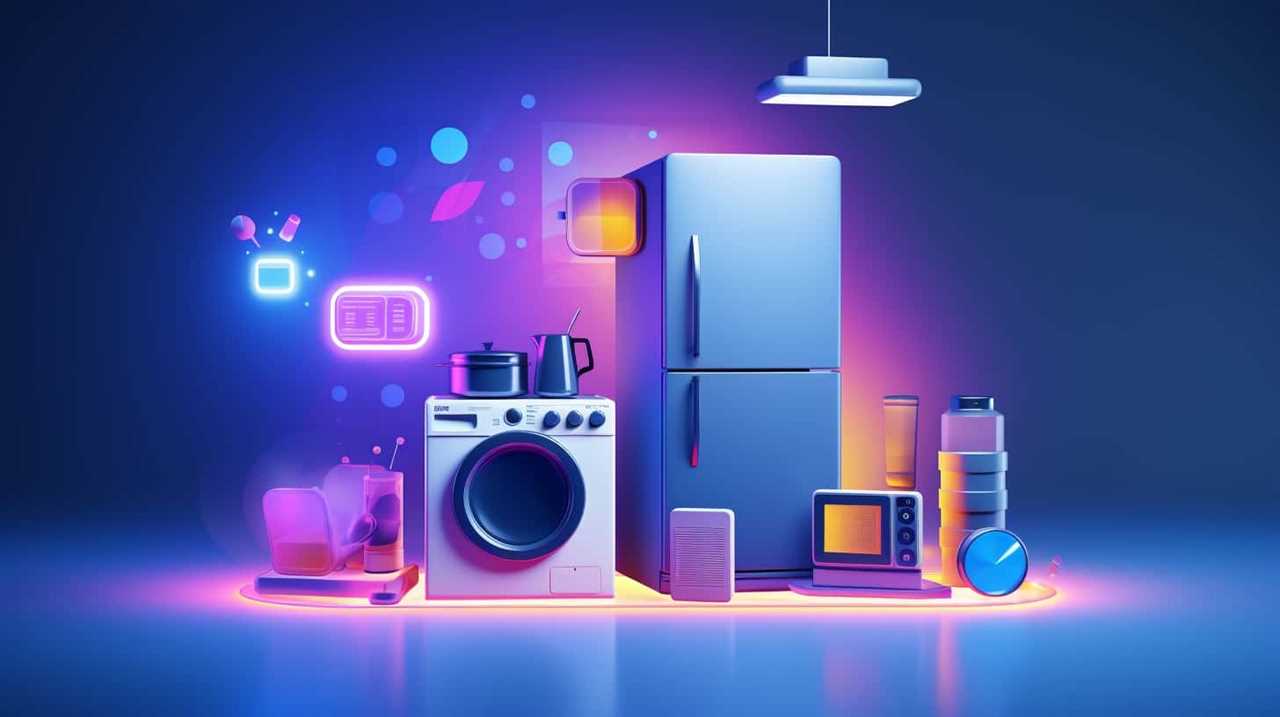
Gas or Electric
Considering the appliance’s energy source is crucial when choosing between gas or electric options for a more energy-efficient home. To help you make an informed decision, here are some key points to consider:
- Efficiency: Gas appliances tend to be more energy-efficient than electric ones, especially for heating and cooking. Gas stoves and water heaters can heat up faster and provide more precise temperature control.
- Cost: Gas appliances generally have lower operating costs compared to electric ones. Natural gas prices are often more stable and lower than electricity rates.
- Environmental Impact: Electric appliances produce zero direct emissions, making them a greener choice. However, the electricity they consume might come from fossil fuel sources, so it’s essential to consider the overall environmental impact.
- Availability: The availability of natural gas in your area can influence your decision. If gas infrastructure is limited, electric appliances might be a more viable option.
Renewable Energy Options
To further explore energy-efficient home appliances, let’s delve into the topic of renewable energy options and how they relate to considering the appliance’s energy source. When choosing an appliance, it’s important to consider the type of energy it will consume. Opting for renewable energy sources can have numerous benefits, both for the environment and your energy bills. Renewable energy sources, such as solar power and wind energy, are sustainable and have a minimal impact on the planet. They also offer long-term cost savings compared to traditional fossil fuel-based energy sources. To help you understand the benefits of renewable energy, here is a table showcasing three common renewable energy sources and their advantages:
| Renewable Energy Source | Advantages |
|---|---|
| Solar Power | Clean, abundant, reduces electricity bills |
| Wind Energy | Renewable, reduces greenhouse gas emissions |
| Geothermal Energy | Reliable, low operating costs |
Energy-Saving Features
Let’s prioritize appliances with energy-saving features that utilize renewable energy sources for a more sustainable and cost-effective home. When considering the energy-saving features of an appliance, it’s important to also take into account its energy source. Here are four key points to consider:
- Renewable Energy Compatibility: Look for appliances that can be powered by renewable energy sources such as solar or wind power. This ensures that the appliance isn’t only energy-efficient but also contributes to reducing greenhouse gas emissions.
- Energy-Saving Technology: Opt for appliances that incorporate advanced energy-saving technology. This includes features like energy-efficient motors, smart sensors, and programmable settings that optimize energy consumption.
- Energy Star Certification: Choose appliances that carry the Energy Star label. This certification indicates that the appliance meets strict energy efficiency guidelines set by the Environmental Protection Agency (EPA).
- Energy Efficient Design: Consider appliances that have been designed with energy efficiency in mind. Look for features such as insulation, proper sealing, and efficient heat exchange systems that minimize energy loss.
Opting for Appliances With Smart Technology
We highly recommend considering smart appliances when choosing energy-efficient home appliances. Smart technology offers a range of features that can help you save energy and reduce your carbon footprint. One of the key benefits of smart appliances is their ability to integrate with your smart home system. This allows you to control and monitor your appliances remotely, making it easier to manage your energy usage.

Energy monitoring is another important feature of smart appliances. With real-time energy monitoring, you can track how much energy each appliance is using and identify areas where you can make improvements. This data can be used to adjust your energy consumption habits and make more informed decisions about when and how you use your appliances.
To illustrate the benefits of smart appliances, here is a table showcasing some popular smart appliances and their energy-saving features:
| Appliance | Energy-Saving Features | Smart Home Integration |
|---|---|---|
| Smart Thermostat | Programmable settings, energy usage monitoring | Yes |
| Smart Refrigerator | Energy-efficient cooling technology, automatic defrost | Yes |
| Smart Washing Machine | Water and energy-saving cycles, load detection | Yes |
| Smart Dishwasher | Energy-efficient wash cycles, delayed start option | Yes |
Assessing the Appliance’s Performance and Usage
Now, let’s delve into evaluating how the appliance performs and is used to ensure its energy efficiency. Assessing energy consumption and the impact on the environment is crucial in choosing energy-efficient home appliances. Here are four key factors to consider:
- Energy Star rating: Look for appliances with the Energy Star label, which indicates that they meet strict energy efficiency standards set by the Environmental Protection Agency (EPA). Higher-rated appliances consume less energy and have a smaller environmental footprint.
- Energy usage data: Review the appliance’s energy usage data, usually provided in kilowatt-hours (kWh) per year. This information allows you to compare energy consumption between different models and make an informed decision.
- Usage patterns: Consider how you plan to use the appliance. For example, if you frequently use the oven or dishwasher, opt for models with energy-saving features like shorter cycle times or convection cooking.
- Additional features: Some appliances come with energy-saving features, such as load-sensing technology in washing machines or adjustable temperature settings in refrigerators. These features can help reduce energy consumption and minimize environmental impact.
Considering the Appliance’s Lifespan and Maintenance
When choosing energy-efficient home appliances, it’s important to consider the appliance’s lifespan and maintenance.

A longer lifespan can offset any initial higher costs, as it means less frequent replacements and reduced environmental impact.
Additionally, regular maintenance can help ensure optimal performance and energy efficiency over time.
Longevity Vs. Energy Consumption
To ensure optimal energy efficiency, it’s crucial to consider the appliance’s lifespan and maintenance requirements. When comparing longevity and energy consumption, it’s important to understand the environmental impact of your appliance choices. Here are four key factors to consider:
- Energy Star Certification: Look for appliances that bear the Energy Star label. These appliances have undergone rigorous testing to ensure they meet strict energy efficiency standards.
- Energy Consumption Ratings: Check the energy consumption ratings of different appliances before making a purchase. Look for appliances with lower energy consumption to reduce your environmental impact and save on energy bills.
- Maintenance Requirements: Consider the maintenance needs of the appliance. Regular maintenance can help prolong its lifespan and ensure optimal energy efficiency.
- Warranty: Look for appliances that come with a warranty. A longer warranty period indicates that the manufacturer has confidence in the appliance’s durability and performance.
Maintenance Costs Over Time
One important aspect to consider when evaluating the maintenance costs over time for energy-efficient home appliances is the overall lifespan and necessary upkeep. While energy efficiency is crucial for long term savings, it is equally important to factor in the maintenance costs associated with keeping the appliance running smoothly.

To help you make an informed decision, we have created a table outlining the estimated maintenance costs for three common energy-efficient appliances over a 10-year lifespan:
| Appliance | Estimated Maintenance Costs over 10 Years |
|---|---|
| Refrigerator | $200 |
| Washer and Dryer | $300 |
| Air Conditioner | $150 |
By considering these maintenance costs, you can better understand the long term savings potential of each appliance. It is worth noting that these figures are estimates and may vary depending on usage and specific model. However, they provide a general idea of what to expect in terms of maintenance expenses.
When choosing energy-efficient home appliances, it is essential to consider both the upfront cost and the maintenance costs over time. This holistic approach will ensure that you make a financially sound decision and reap the benefits of long term savings.
Effect on Overall Efficiency
We frequently evaluate the effect on overall efficiency by considering the lifespan and maintenance of the appliance. When it comes to energy-efficient appliances, their design plays a crucial role in determining their overall performance. Here are four key factors to consider:

- Lifespan: Energy-efficient appliances are built to last longer than their conventional counterparts. They’re designed with durable materials and components, reducing the need for frequent repairs or replacements.
- Maintenance requirements: Energy-efficient appliances often have lower maintenance needs. They’re designed to operate efficiently with minimal upkeep, saving you time and money on maintenance costs.
- Energy-saving features: Look for appliances that have innovative energy-saving features, such as automatic shut-off systems, programmable timers, and energy-efficient modes. These features can significantly reduce energy consumption and improve overall efficiency.
- Regular servicing: To ensure optimal performance and energy efficiency, it’s essential to schedule regular servicing and maintenance for your appliances. This will help identify and address any issues before they become major problems, prolonging the lifespan of your appliances.
Comparing Energy Consumption and Cost
When comparing energy consumption and cost of home appliances, it is essential to consider their efficiency ratings. By understanding the energy-saving benefits and long-term savings of different appliances, consumers can make informed decisions that align with their budget and environmental concerns. To assist in this process, we have created a table summarizing the efficiency ratings, energy consumption, and estimated annual cost for three common household appliances: refrigerator, washing machine, and air conditioner.
| Appliance | Efficiency Rating | Energy Consumption (kWh/year) | Estimated Annual Cost ($) |
|---|---|---|---|
| Refrigerator | ENERGY STAR | 400 | $50 |
| Washing Machine | High Efficiency | 200 | $30 |
| Air Conditioner | SEER 16+ | 900 | $120 |
As you can see, opting for ENERGY STAR-certified appliances or those with high efficiency ratings can lead to significant energy savings and lower annual costs. While these appliances may have a slightly higher upfront cost, the long-term savings outweigh the initial investment. Additionally, it is important to note that the estimated annual cost may vary based on factors such as electricity rates and usage patterns.
Considering the efficiency ratings, energy consumption, and estimated annual cost can help consumers make well-informed decisions when selecting energy-efficient home appliances. By choosing appliances that align with their energy-saving goals and budget, individuals can contribute to a greener future while enjoying long-term savings.
Checking for Energy-Efficient Certifications
To ensure the energy efficiency of your chosen appliances, it’s crucial to check for certifications indicating their energy-saving capabilities. Energy efficient labeling and certifications provide valuable information about the appliance’s energy consumption and efficiency.

Here are four key certifications to look for when choosing energy-efficient appliances:
- ENERGY STAR: This certification is widely recognized and indicates that the appliance meets strict energy efficiency guidelines set by the U.S. Environmental Protection Agency. Appliances with the ENERGY STAR label can help you save both energy and money.
- EPEAT: Electronic Product Environmental Assessment Tool (EPEAT) certification is specific to electronics and ensures that the appliance meets certain environmental standards. It considers factors such as energy consumption, materials used, and recyclability.
- EU Energy Label: This certification is mandatory for appliances sold in the European Union. It provides a clear energy efficiency rating from A to G, with A being the most efficient. The label also provides information on energy consumption and other important factors.
- EnergyGuide: This label is primarily found on major appliances and provides information about the appliance’s energy consumption and estimated yearly operating costs. It helps you compare the energy efficiency of different models and make informed purchasing decisions.
Looking for Rebates and Incentives
One option to consider for maximizing energy savings is exploring available rebates and incentives. Many energy-efficient appliances come with rebates or incentives that can help offset the initial cost. These rebates and incentives are typically offered by utility companies, government agencies, or manufacturers. They’re designed to encourage consumers to choose energy-efficient appliances that can help reduce energy consumption and lower utility bills.
When looking for rebates and incentives, it’s important to check with your local utility company or government agency. They often have programs in place to promote energy efficiency and may offer cash incentives or rebates for purchasing qualifying appliances. It’s also worth checking with the appliance manufacturer, as they may offer their own rebates or promotions.
In addition to checking for rebates and incentives, it’s also important to look for energy-efficient certifications when choosing appliances. These certifications, such as ENERGY STAR, indicate that the appliance meets certain energy efficiency standards set by the Environmental Protection Agency (EPA). Appliances with these certifications are proven to consume less energy and can help save on utility bills over time.

Researching User Reviews and Ratings
We found that researching user reviews and ratings was a valuable step in our process of choosing energy-efficient home appliances. By taking the time to read what other users had to say about their experiences with different models, we were able to gain valuable insights and make more informed decisions.
Here are four reasons why researching user reviews and ratings is essential:
- User Satisfaction: Reading user reviews allows you to gauge the overall satisfaction levels of customers who’ve already purchased and used the appliances you’re considering. This feedback can help you understand the strengths and weaknesses of each model and determine if it meets your specific needs.
- Real-World Performance: User reviews often provide valuable information about how well appliances perform in real-world conditions. This insight can give you a better idea of how energy-efficient the appliance truly is and whether it lives up to its claims.
- Price Comparison: User reviews can also provide insights into the value for money offered by different appliances. By comparing the prices and performance of various models, you can make sure you’re getting the best deal for your budget.
- Potential Issues: User reviews can alert you to potential issues or common problems that may arise with certain appliances. This information can help you avoid purchasing an energy-efficient appliance that may have reliability or durability issues in the long run.
Considering the Appliance’s Compatibility With Renewable Energy Sources
After researching user reviews and ratings, we found it important to consider the compatibility of the chosen energy-efficient home appliances with renewable energy sources. When considering the compatibility of appliances with renewable energy sources, there are a few key factors to keep in mind.
First, it’s important to understand the energy source considerations for your home. If you have already invested in renewable energy sources such as solar panels or wind turbines, you’ll want to ensure that the appliances you choose are compatible with these systems. Some appliances may require specific voltage or frequency, so it’s crucial to check their compatibility before making a purchase.

Additionally, it’s worth considering appliances that have energy-saving features specifically designed for use with renewable energy sources. These features may include the ability to adjust energy consumption based on available renewable energy supply or the ability to store excess energy for later use.
Lastly, be sure to check if the appliance has been certified by relevant energy efficiency organizations. Look for labels such as Energy Star or other certifications that indicate the appliance has been tested and proven to be energy-efficient.
Understanding the Environmental Impact of the Appliance
To fully assess the suitability of energy-efficient home appliances, it’s important for us to understand the environmental impact of the appliance. By considering the environmental sustainability of the appliance, we can make informed choices that align with our desire to reduce our carbon footprint.
Here are four key aspects to consider when evaluating the environmental impact of an appliance:

- Energy Efficiency: Look for appliances that utilize energy-saving technologies. These technologies can significantly reduce energy consumption, resulting in lower greenhouse gas emissions and reduced strain on natural resources.
- Material Selection: Consider appliances made from sustainable materials. Opt for products that use recycled materials or materials that are easily recyclable at the end of their lifespan. This helps reduce waste and promotes a circular economy.
- Water Usage: Evaluate the water efficiency of appliances that require water, such as washing machines and dishwashers. Choose models that have water-saving features, such as adjustable water levels or sensor-based controls, to minimize water waste.
- Lifecycle Analysis: Assess the entire lifecycle of the appliance, from manufacturing to disposal. Look for appliances that are designed for durability and easy repair. Additionally, consider the energy required for the production and disposal of the appliance, as well as the availability of recycling programs.
Frequently Asked Questions
Are There Any Government Programs or Initiatives That Offer Incentives for Purchasing Energy-Efficient Appliances?
There are several government programs and initiatives that offer incentives for purchasing energy-efficient appliances. These government incentives and energy-efficient appliance programs aim to encourage consumers to choose appliances that are more environmentally friendly and energy-efficient.
By providing financial incentives, such as tax credits or rebates, these programs make it more affordable for individuals and households to invest in energy-efficient home appliances.
These initiatives help reduce energy consumption and contribute to a more sustainable future.
How Do I Know if an Appliance Is Compatible With Renewable Energy Sources, Such as Solar Panels?
Appliance compatibility with renewable energy sources, such as solar panels, is an important consideration when choosing energy-efficient home appliances.
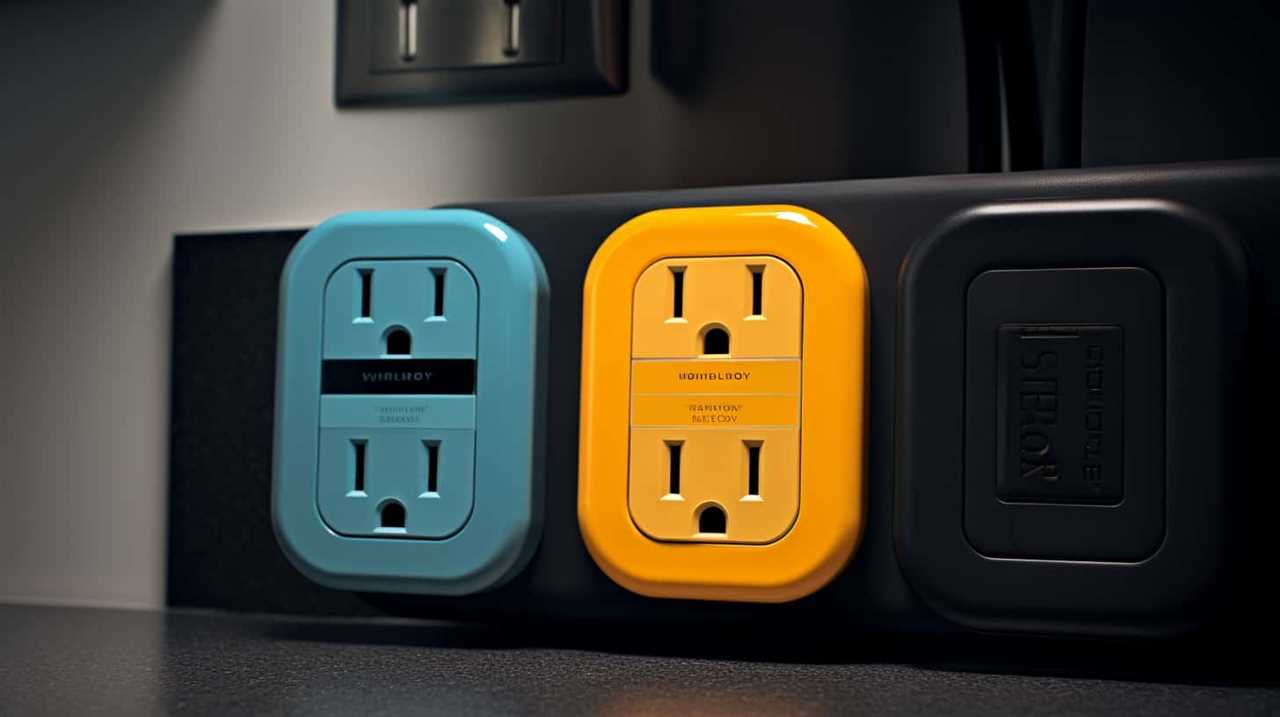
To determine if an appliance is compatible, look for specifications or labels that indicate it can be powered by renewable energy.
Additionally, check if the appliance has the necessary connections or adapters for renewable energy sources.
Consulting with a professional or reading the manufacturer’s guidelines can also provide valuable information on energy source compatibility.
Can I Rely Solely on User Reviews and Ratings to Determine if an Appliance Is Energy-Efficient?
We can’t solely rely on user reviews and ratings to determine if an appliance is energy-efficient. While they can provide insights, they may not always reflect the actual energy usage or reliability of the appliance.

It’s important to consider energy efficiency claims made by the manufacturer and compare them with the appliance’s energy consumption data. This way, we can make a more informed decision and ensure that the appliance aligns with our energy-saving goals.
Are There Any Specific Certifications or Labels I Should Look for to Ensure an Appliance Is Truly Energy-Efficient?
When choosing energy-efficient home appliances, it’s important to look for certifications and labels that ensure their energy-saving capabilities. These certifications, such as ENERGY STAR, indicate that the appliance has met specific criteria for efficiency.
Additionally, some appliances may have specific energy-saving features, like automatic shut-off or power management modes, which can further reduce energy consumption.
What Are Some Common Maintenance Tasks That Need to Be Performed on Energy-Efficient Appliances to Ensure Their Longevity and Efficiency?
Maintenance tasks are essential for ensuring the longevity and efficiency of energy-efficient appliances.

Regular cleaning of filters, coils, and vents helps to optimize their performance and prevent dust buildup.
It’s also important to check and replace worn-out parts, such as gaskets or seals, to maintain the appliance’s energy efficiency.
Additionally, proper usage, such as not overloading or overworking the appliance, can extend its lifespan.
Regular maintenance tasks like these are crucial for maximizing the efficiency and lifespan of energy-efficient appliances.

Conclusion
In conclusion, when choosing energy-efficient home appliances, it’s crucial to consider energy-saving features, understand efficiency ratings, evaluate size and capacity, and consider the energy source. Opting for appliances with smart technology can further enhance efficiency, and looking for rebates and incentives can save money.
Researching user reviews and ratings helps make informed decisions, while considering compatibility with renewable energy sources contributes to a sustainable lifestyle. Understanding the environmental impact of appliances is vital for a greener future.


